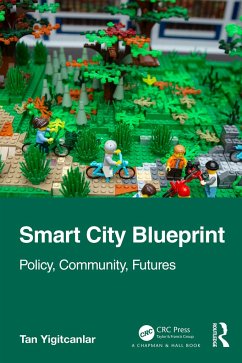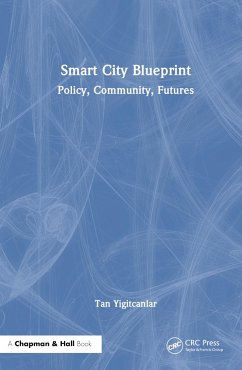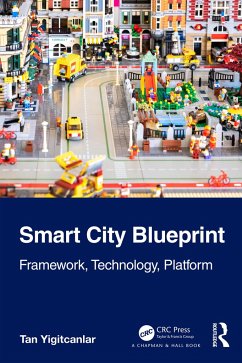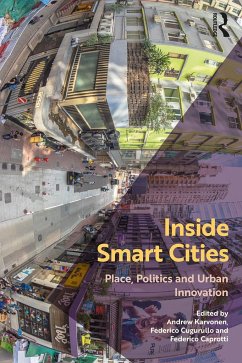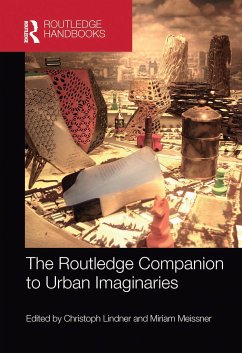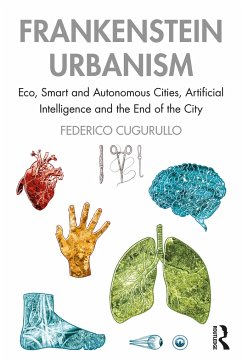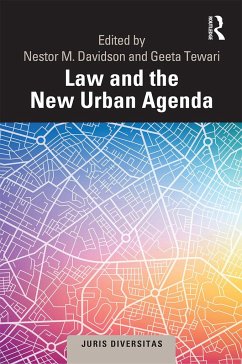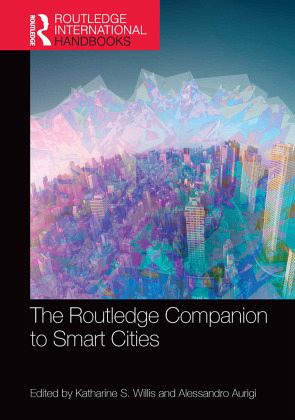
The Routledge Companion to Smart Cities
Versandkostenfrei!
Versandfertig in 6-10 Tagen
51,99 €
inkl. MwSt.
Weitere Ausgaben:

PAYBACK Punkte
26 °P sammeln!
The Routledge Companion to Smart Cities explores the question of what it means for a city to be 'smart', raises some of the tensions emerging in smart city developments and considers the implications for future ways of inhabiting and understanding the urban condition. The volume draws together a critical and cross-disciplinary overview of the emerging topic of smart cities and explores it from a range of theoretical and empirical viewpoints.This timely book brings together key thinkers and projects from a wide range of fields and perspectives into one volume to provide a valuable resource that...
The Routledge Companion to Smart Cities explores the question of what it means for a city to be 'smart', raises some of the tensions emerging in smart city developments and considers the implications for future ways of inhabiting and understanding the urban condition. The volume draws together a critical and cross-disciplinary overview of the emerging topic of smart cities and explores it from a range of theoretical and empirical viewpoints.
This timely book brings together key thinkers and projects from a wide range of fields and perspectives into one volume to provide a valuable resource that would enable the reader to take their own critical position within the topic. To situate the topic of the smart city for the reader and establish key concepts, the volume sets out the various interpretations and aspects of what constitutes and defines smart cities. It investigates and considers the range of factors that shape the characteristics of smart cities and drawstogether different disciplinary perspectives. The consideration of what shapes the smart city is explored through discussing three broad 'parts' - issues of governance, the nature of urban development and how visions are realised - and includes chapters that draw on empirical studies to frame the discussion with an understanding not just of the nature of the smart city but also how it is studied, understood and reflected upon.
The Companion will appeal to academics and advanced undergraduates and postgraduates from across many disciplines including Urban Studies, Geography, Urban Planning, Sociology and Architecture, by providing state of the art reviews of key themes by leading scholars in the field, arranged under clearly themed sections.
This timely book brings together key thinkers and projects from a wide range of fields and perspectives into one volume to provide a valuable resource that would enable the reader to take their own critical position within the topic. To situate the topic of the smart city for the reader and establish key concepts, the volume sets out the various interpretations and aspects of what constitutes and defines smart cities. It investigates and considers the range of factors that shape the characteristics of smart cities and drawstogether different disciplinary perspectives. The consideration of what shapes the smart city is explored through discussing three broad 'parts' - issues of governance, the nature of urban development and how visions are realised - and includes chapters that draw on empirical studies to frame the discussion with an understanding not just of the nature of the smart city but also how it is studied, understood and reflected upon.
The Companion will appeal to academics and advanced undergraduates and postgraduates from across many disciplines including Urban Studies, Geography, Urban Planning, Sociology and Architecture, by providing state of the art reviews of key themes by leading scholars in the field, arranged under clearly themed sections.




